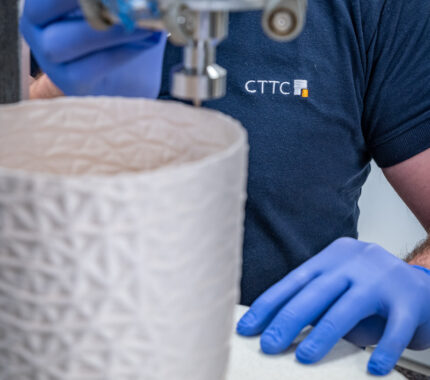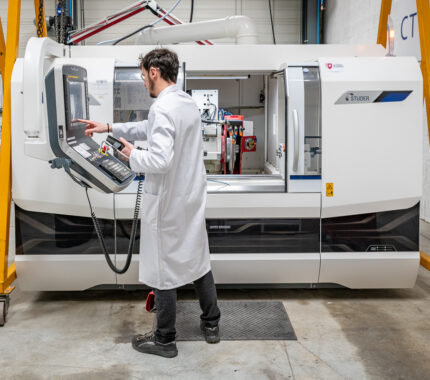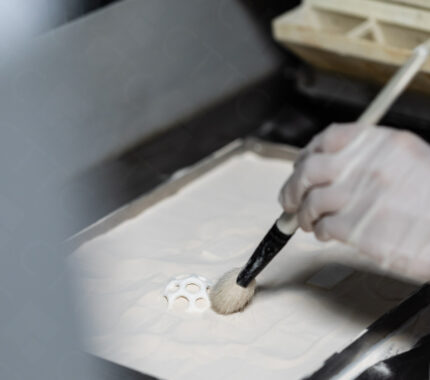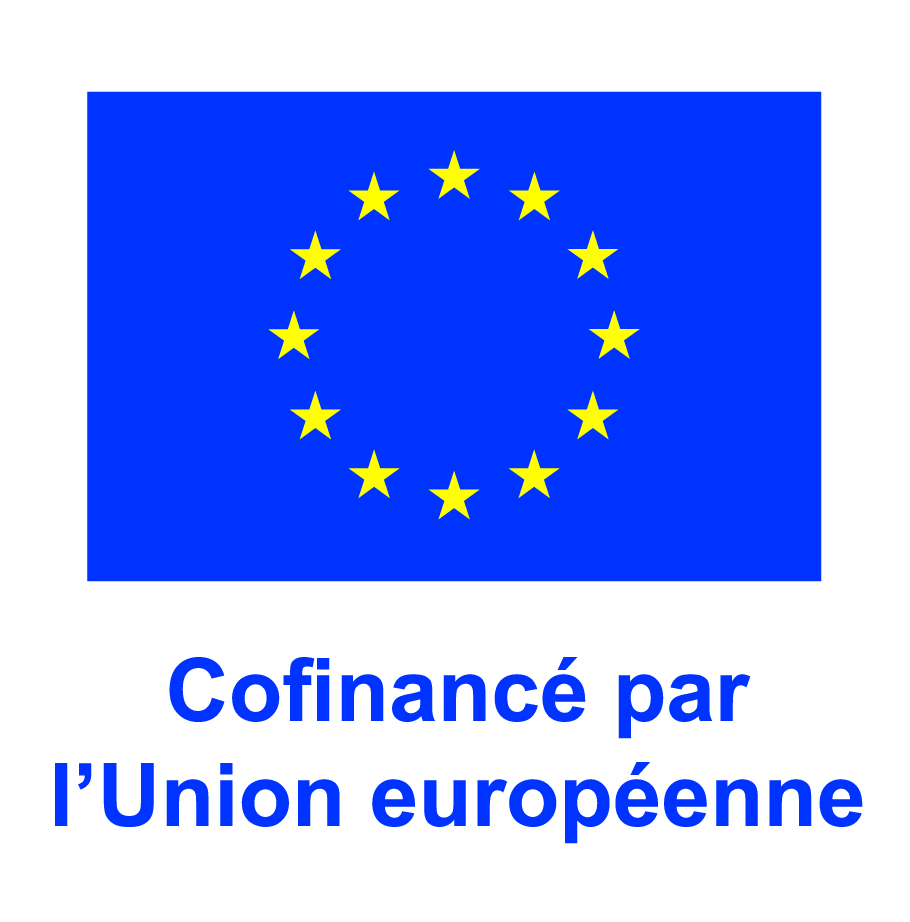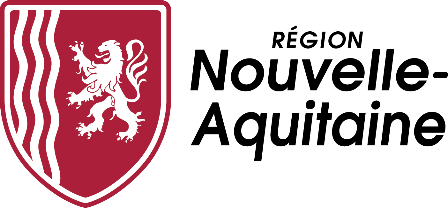CERA 3+
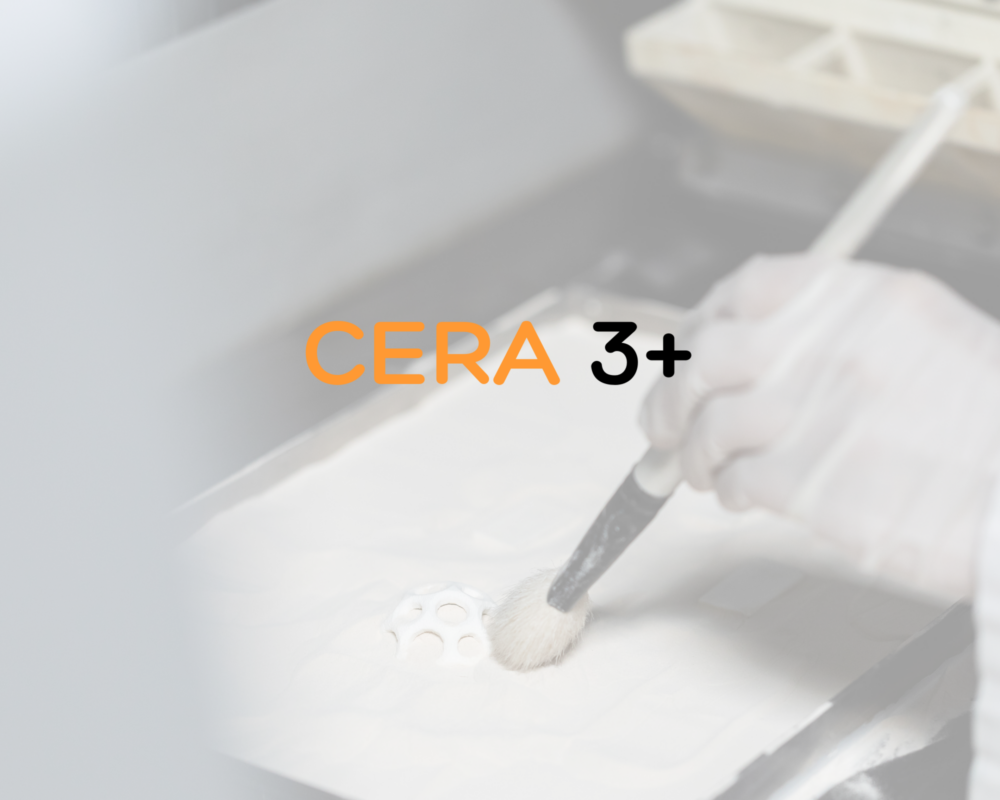
30 Oct 24
ArticlesNon classified
CERA 3+: a technology resourcing programme for the ceramics industry
The CTTC is an association under the law of 1901. It stands out for its commitment to supporting business development. This commitment is exercised in particular through technology transfer. It is therefore necessary to take into account the constant evolution of conventional technologies. This also includes the growth of innovative technologies. The CTTC also promotes the creation of value and new skills.
In this context, the CTTC's CERA 3+ programme is in line with the centre's strategy. It responds to the needs expressed by the industrial and academic sectors. This programme is a continuation of the actions undertaken in the previous CERA+ and CERA2+ programmes. At the same time, it launches new initiatives with strong industrial potential.
The programme is based on four components:
The ADDICERAM project: additive manufacturing processes for the factory of the future
The CERATECH project: advanced manufacturing of high-performance ceramics
The CERACOAT project: cold ceramic coatings
The CERAMAT project: high-performance and recyclable ceramic materials
These four strands are the essential pillars of the CTTC's technological strategy, intensified by the collaborative projects developed in parallel
ADDICERAM: Additive manufacturing of ceramics
The ADDICERAM project will enable the CTTC to pursue its developments in the field of additive manufacturing of ceramics and multi-materials. It builds on the skills acquired over the last twenty years. The project also benefits from recently developed equipment. This will optimise the use of additive manufacturing (3D printing, direct writing).
The project is divided into three parts:
CERAJETTING : this technique focuses on 3D printing using binder jetting. It enables complex parts to be produced without the need for solvent feedstocks or supports.
OPTICERAM : focused on stereolithography (SLA) and also direct writing by micro-dispensing for the production of high-precision optical components.
CERAGREEN 3D : dedicated to eco-responsible 3D printing ceramic feedstocks, formulated from bio-sourced materials, for reduced ecological impact.
Through these different areas, ADDICERAM is working on the development of a manufacturing model for the production of high-precision optical components.
CERATECH : State-of-the-art in the manufacture of advanced ceramics
The CERATECH project aims to strengthen the CTTC's expertise in the advanced manufacture of high-performance ceramics, by developing know-how such as precision machining and isostatic pressing.
These initiatives will enhance our technological offering, enabling us to propose state-of-the-art methods for the manufacture of ceramics that meet performance and dimensional accuracy requirements.
CERACOAT : La Révolution des Revêtements à Froid
The CERACOAT project focuses on the deposition of ceramic coatings using the innovative Aerosol Deposition Method (ADM). This method enables the deposition of dense, uniform ceramic layers at ambient temperature on any type of substrate, offering both new deposition performance and an environmentally-friendly alternative to conventional processes.
The project is divided into two parts:
Materials: in this area we are working on the development of deposition of different types of ceramics (alumina, zirconia, barium titanate, aluminium nitride, silicon carbide, hydroxyapatite, battery materials, etc.). Applications include electric batteries, anti-wear, anti-scratch and anti-impact coatings, deposition of transparent ceramics, etc. ADM enables dense films to be deposited on a variety of substrates, including temperature-sensitive ones such as glass and polymers. The CTTC is the only CRT in France working on this process, in collaboration with the Ceramics Research Institute (UMR CNRS 7315), in the form of several doctoral theses.
Process component: the aim of this component is to make the ADM process more reliable and bring it to a level of industrial maturity, again in partnership with the Ceramics Research Institute (IRCER). To reach maturity, yield and reproducibility need to be improved. Another area of work is to enable the technology to be extended to 3D deposits for additive manufacturing applications.
CERAMAT: Performance and Recyclability of Ceramic Materials
The CERAMAT project is dedicated to studying the durability and recyclability of ceramic materials. The project begins by exploring the manufacturing conditions for technical ceramic powders, their environmental and societal impact, and new formulations for eco-designed materials incorporating bio-based materials.
CERAMAT is divided into three parts:
The creation of a materials library with an associated carbon footprint,
Research into biosourced organic auxiliaries,
The development of high-performance, eco-designed materials for the aerospace, luxury goods and electronics industries.
A Sustainable and Resilient Contribution to Industry
The CERA 3+ programme enables the CTTC to respond to new sustainability needs by exploring innovative technologies such as ADM and developing recyclable and bio-based materials. The CTTC's ambition is to propose concrete solutions for industry that are consistent with the new social and environmental challenges, while guaranteeing the desired performance and acceptable costs. This programme gives the CTTC the opportunity to pave the way for promising applications in a variety of demanding sectors, thereby consolidating its contribution to a more sustainable, competitive and resilient ceramics industry.
Thanks and Partnerships
The CTTC would like to thank the European Union and the Nouvelle-Aquitaine Region for their confidence and financial support. Without this support, a project of this scale would be difficult to carry out.
The CTTC would also like to thank the various partners who are taking part in the different projects in this programme.
